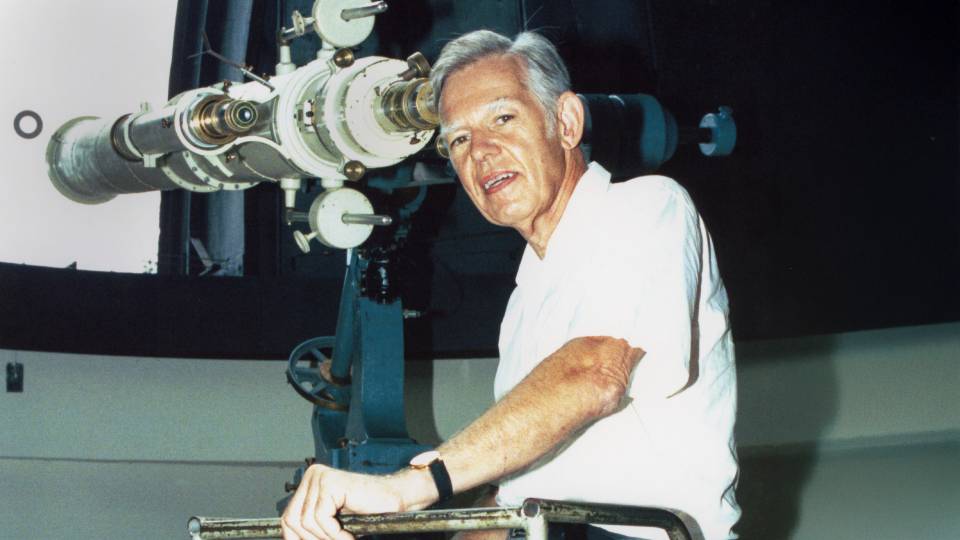Robert Lisk, professor of biology, emeritus, died at an Ottowa hospital on Sept. 12. He was 88. He had joined the Princeton faculty in 1960 and taught for 30 years before transferring to emeritus status in 1990.

Robert Lisk
“Bob Lisk was a warm and supportive senior scientist who was open to new ideas and readily opened his lab for collaborations with junior faculty and their students,” said Daniel Rubenstein, the emeritus Class of 1877 Professor of Zoology and a former chair of Princeton’s Department of Ecology and Evolutionary Biology. “He was a physiologist and organismal biologist of the old school. He deeply wanted to understand how animals worked, especially with respect to hormones and reproductive behavior.”
Born Nov. 10, 1934, in Pembroke, Ontario, Lisk received his bachelor’s degree from Queens University in 1957 and then his master’s and doctoral degrees from Harvard in 1959 and 1960, respectively. He joined the Princeton faculty as an instructor in 1960, became an assistant professor in 1962 and associate professor in 1965, rose to full professor in 1970, and directed the fledgling program in neuroscience from 1982 to 1988.
“I remember him as a kindly man, an avuncular figure,” said Peter Grant, Princeton’s Class of 1877 Professor of Zoology, Emeritus.
“He was an endocrinologist who attempted to understand the complex and intricate interactions that take place during reproductive cycles,” said Grant, who characterized his thoughtful research as “a step-by-step progress in identifying the individual threads in a complex tapestry and determining how they work together.”
Lisk’s most influential early work, establishing the role of hormones and steroids in the brain, was initially rejected from top-tier journals “because it was a ‘stupid’ experiment and everyone already knew steroids were not in the brain,” recalled Katherine Wynne-Edwards, a longtime collaborator and a 1987 Ph.D. alumna. She was a graduate student in Lisk’s lab when his 1960 paper received its long-overdue honors: in 1982, it was highlighted as a “Citation Classic” by the Science Citation Index.
“In many ways, he laid the foundation for the study of behavioral neuroendocrinology,” said Wynne-Edwards, who is now the Jack Manns Professor of Comparative Endocrinology at the University of Calgary.
Many of Lisk’s students cited his lasting impact on their lives and career.
“I vividly remember rounding the corner from my lab desk into Lisk’s office, furious with myself and ready to share the blame with him,” said Wynne-Edwards. “I had just realized, while trying to organize data from a complex experiment, that I was actually missing an essential control group. It was a ghastly and embarrassing error on my part. I told him what I had realized. Without raising his head from his work, he said, ‘I know.’ I asked why he had not told me about my error and helped me avoid it. He looked up and said, ‘I was still confident that you would figure it out for yourself.’ That laissez-faire academic parenting moment still influences my attention to detail, confidence, and willingness to fail and admit it.”
John Buntin, an emeritus biology professor at the University of Wisconsin-Milwaukee, was Lisk’s postdoc and lab instructor in the 1970s. “Bob was a wonderful mentor to me, and I learned so much from him that helped me in my future career,” he said. “Bob was very productive, and he was great about supervising and acknowledging the contributions of many undergraduate and graduate collaborators who ended up as coauthors on his publications. I think I speak for many of his former students and postdocs in saying he will be greatly missed.”
Andrea Gore, a member of Princeton’s Class of 1985 and now Professor and Vacek Chair in Pharmacology at the University of Texas-Austin, performed her thesis research with Lisk. “I was absolutely thrilled to be accepted into Dr. Lisk’s lab and work in the area of hormones and behavior,” she said. “What was remarkable about my experience, in retrospect, is that Dr. Lisk entrusted undergraduate students with a level of responsibility and independence that are normally reserved for senior graduate students. My thesis on mate choice behavior in golden hamsters resulted in two published papers, and more importantly instilled the love of research that I still have today.”
Lorey Takahashi, a professor of psychology at the University of Hawai’i-Manoa, was Lisk’s postdoc from 1982 to 1986. “The research mentoring I received from Bob was a key step for me to continue my academic work on hormones and brain functions in relation to reproduction and stress-related activity,” Takahashi said. “Bob will be remembered by the many undergraduates, graduates, and post-docs who passed through his neuroendocrinology lab at Princeton University and came to know him as a kind and generous mentor.”
Lisk was a fellow of the American Association for the Advancement of Science (AAAS) and a member of the American Association of Anatomists, American Institute for the Biological Sciences, American Society of Physiologists, American Society of Zoologists, Animal Behavior Society, Endocrine Society, International Brain Research Organization, Society for the Study of Reproduction, and Sigma Xi.
Lisk was predeceased by his parents, Leslie and Elsie Lisk, and is survived by many cousins and friends. Donations in his honor may be made to the Renfrew County SPCA or the Canadian Cancer Society.
View or share comments on a memorial page intended to honor Lisk’s life and legacy.






